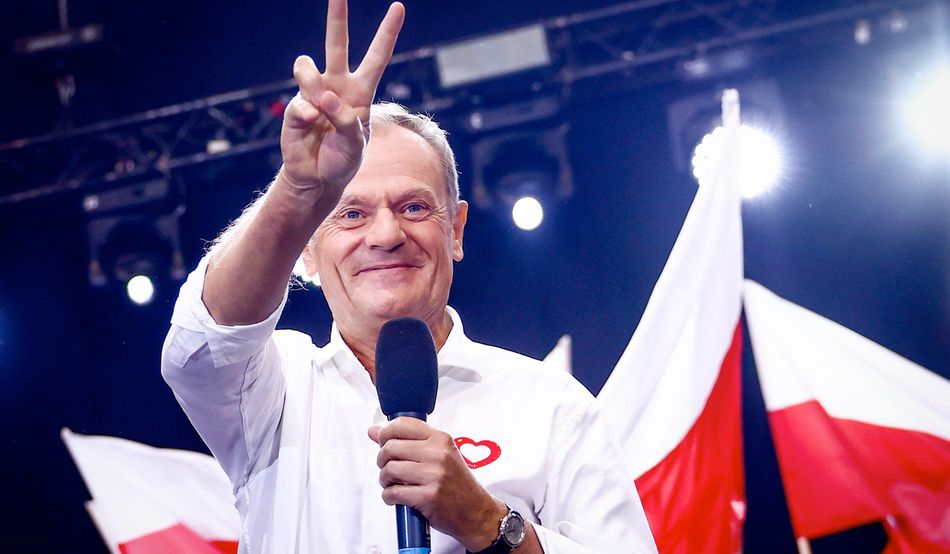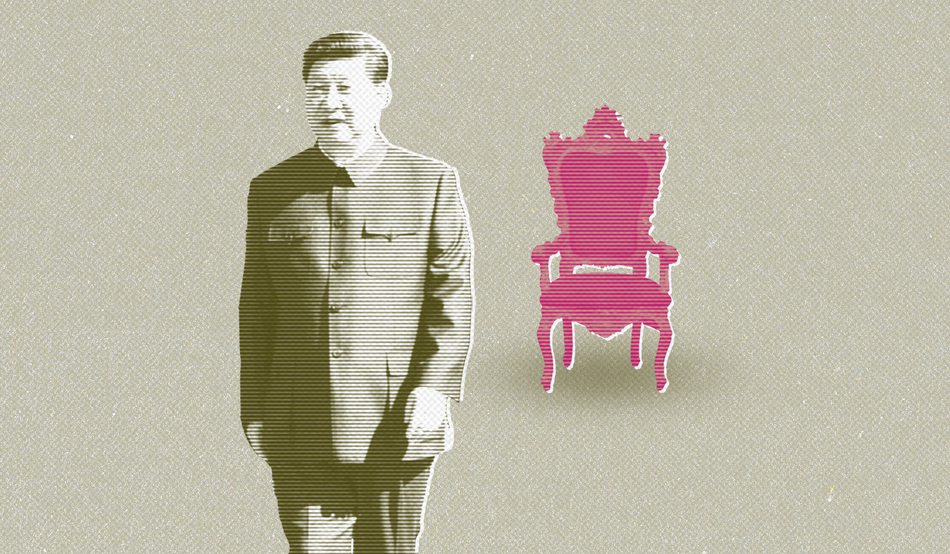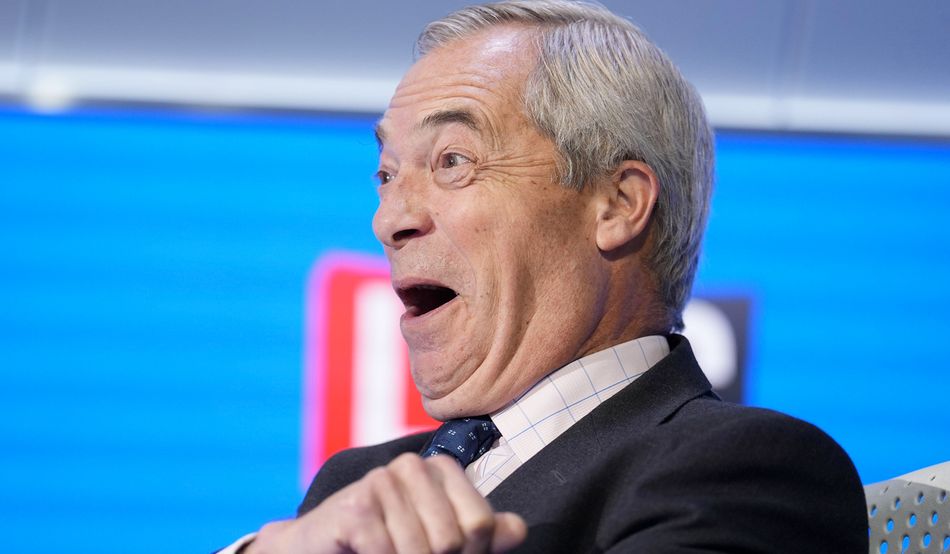Late in life, the 18th-century French liberal thinker Abbé Sieyès was asked what he had done during the French Revolution’s Reign of Terror. He replied, “I survived it.” Reflecting on Sieyès, Michael Ignatieff counsels that it is through survival that liberals can withstand revolutionary times. They need to work hard to remain politically relevant, so that once the revolution has run its course (if they are lucky enough to have survived it), they can try to preserve what revolutions have achieved and to restore what they have destroyed.
Ignatieff’s comments are relevant not only because he is the acclaimed biographer of Isaiah Berlin and a former leader of the Canadian Liberal party, but also because he is someone who understands 21st-century illiberalism first hand. Ignatieff was the rector and president of the Central European University at the very moment when Viktor Orbán expelled it from Hungary in a political act that signalled the arrival of the postliberal age.
Now that we are in that post-liberal age, does it mean the populists will inherit the Earth?
In less than a year, the United States has not only ceased to be the guardian of the postwar liberal order, but turned into its chief antagonist. The effect of the US “changing sides” in international politics is so consequential that it might be compared only to the impact of the disintegration of the Soviet Union. The Trumpian revolution has changed the identity of almost all political players. At the same time, the symptoms of a populist handover can be seen in many corners of the world.
The questions, then, are: what choices do centre-left liberals have when coming to power in a postliberal world? How should they shape their new political identity?
The customary answer is that liberals must be the defenders of democracy, decency and common sense—they should frame politics as a clash between democracy and authoritarianism, sanity and insanity, competence and catastrophe. That strategy sounds noble, but it hasn’t worked particularly well. The expectation that populist governments would vitiate themselves through their own carelessness and extremism proved wrong. The record shows that it is more difficult for populist parties to come to power for the first time than to return to office.
Donald Trump demonstrated that, once in power, populist leaders tend to have a second coming. In 2023, the party of Robert Fico also came back to power in Slovakia’s parliamentary elections. In the October 2025 elections, it is widely expected that Andrej Babiš will win re-election in the Czech Republic. Liberals’ attempts to stand for normality and restoration have not paid dividends. As the last year of the Biden administration shows, sanity can easily be mocked as senility and normality as the arrogance of the elites. Even liberal voters are not particularly eager to return to the recent past. In politics, the yesterday people really desire is never simply the day before.
Poland, no less than the US, exemplifies the failure of postpopulist governments betting on normality, the rule of law and militant antipopulism. The return of Donald Tusk to power in Poland in 2023 was widely read as proof of liberal resilience. The Polish prime minister is that rare type, a charismatic liberal, and his victory made many believe that we should expect a reversal of the populist wave in central and eastern Europe. It seemed that there was no stronger argument in favour of liberalism than eight years of nationalist populist rule, in Poland’s case by the Law and Justice party (PiS). But less than two years since Tusk’s victory, that optimism must be corrected. His unstable governing coalition looks doomed. It has already lost this year’s presidential election, its popularity is declining and the country—most saliently the younger generation—is moving further rightwards.
The problem with framing the struggle against populism as a struggle for the defence of democracy is that hardly anybody is openly against democracy. But in an atmosphere of supreme politicisation, the gravest danger for democracy in the eyes of many is that the party you don’t support might win. As post--election studies in the US show, while Democrats hoped to win by asking people to defend democracy, the will to defend democracy was also one reason given by Republican voters when explaining why they voted for Trump in 2024.
Focusing on the rule of law is even less promising. The major challenge for postpopulist governments is that illiberals have captured public institutions, from media organisations to constitutional courts, and defending the separation of powers has turned into defending party loyalists often illegally installed by previous populist governments. Liberals have found themselves trapped in what political scientists Stanley Bill and Ben Stanley called “the postpopulist trilemma”: to retain public support, postpopulist liberal governments must be fast, effective and impeccably legal—since the rule of law is their rallying cry. Experience shows that you can achieve any two of these, but never all three. You can be fast and effective, but only by adopting a populist style of decision-making that compromises legality. If you focus on the legal, you risk being slow or ineffective and disappointing your supporters.
Confronted with a public broadcaster still staffed by PiS loyalists and acting as a mouthpiece for the right, Tusk faced a brutal choice: bend the rules in order to change public television and damage his image as a defender of legality, or live with a hostile broadcaster hellbent on toppling his government. He faced a similar choice with the Constitutional Tribunal. In both cases, he decided in favour of speed.
Hungary could become the extreme case of the postpopulist trilemma. Even if the opposition succeeds in winning the elections next April after four terms of Viktor Orbán’s rule, will it be allowed to govern, since nearly all so-called independent institutions are populated by Orbán loyalists? It is almost impossible to dismantle the captured state without violating existing legal constraints.
What about Britain? In this dark context, Labour’s victory last year seemed the best chance for a successful postpopulist liberal government. Post-Brexit Britain looked like the ideal stage for the centre left to articulate a “third way”—not between the market and the state but between the radical left and the Great Replacement right. It wouldn’t be the first time the UK stayed calm and carried on while others became illiberal and unhinged. It looked as if the failure of post-Brexit Conservative governments was so spectacular that it had immunised British voters against the populist temptation. Unlike Tusk in Poland, Keir Starmer entered office with a large majority and could rely on a professional civil service and independent courts. After all, Labour itself is a postpopulist actor: it survived Jeremy Corbyn’s radicalism and re-embraced the virtues of common-sense centrism.
So why is Starmer’s government failing and flailing—and so quickly? Why are pundits asking, “Are we living through the beginning of an English revolution?” and observing that “rarely have we seen so many people so angry, in so many flag-decorated streets around the country”? Is this simply a leadership failure, bad luck, or something structural?
In the second half of the 19th century, Walter Bagehot argued that monarchy was the best form of government because people could hardly imagine a different one. We can hope this is true of democracy today, but an enfeebled political imagination couldn’t save the monarchy in most of Europe. Will it be enough to save liberal democracy? In normal times, a poverty of imagination can be a political stabiliser; in revolutionary times, it is the talent to stir public imagination that is at the heart of politics.
Climate activists and national populists share the sense of living in the world’s last days.
Consider the US: like it or not, Trump’s revolutionary temper has achieved something important. He has reasserted the primacy of politics, much as the revolutionary left did in the 19th and 20th centuries. He convinced voters that if a government truly wants to do something, it can—and that much-praised liberal constraints on executive power, like independent courts or independent central banks, often serve as excuses for elites not to deliver the change the majority wants. While liberal elites argued that migration policy could not be reversed without catastrophic consequences, Trump reversed it by breaking the law and doing things his opponents (rightly) defined as un-American. The result: in 2025, more people have been leaving the US than entering, legally or illegally. And while pundits insisted markets would punish Trump for his tariff policies, the highest since the 1930s, in the short-term markets followed Trump rather than opposing him, while the richest Americans, instead of rallying in defence of their beloved free market, simply joined his court.
It is clear we now live in revolutionary times. Looking back, we can see the origins of the radical changes we are going through in the political legacy of the Covid-19 pandemic. It upended assumptions about what is politically and socially possible, transforming unimaginable scenarios into reality. Being physically locked at home, we became revolutionised in our heads.
If you’re a radical climate activist, you’re dreaming of a day when all planes are grounded and stop polluting the planet. Prior to Covid, you could never have imagined it would happen. Then Covid arrived, and we were all grounded. If you’re a right-wing radical, you’re dreaming about a country in which nobody crosses the border—where there are no immigrants. Voilà, it happened overnight. The borders were closed. Coronavirus made possible (and imaginable) things that, until yesterday, were perceived as impossible—even if they were desired by many.
The party game Truth or Dare is a fair representation of the state of politics today. Transgression has become a source of legitimacy.
Politics is no longer structured by the traditional opposition of left and right. Populists committed to closing the borders between states have opened the borders between left and right. The populist right has appropriated many causes that traditionally were championed by the left—not least the defence of free speech and the attack on neoliberalism. In fact, these have become an essential part of the appeal of populist leaders.
Politics is instead shaped by the clash of two, if you will, extinction rebellions.
One is the ecological imagination, triggered by the looming prospect of climate catastrophe. It galvanises the belief that, unless we change the way we live and produce, we will destroy life on Earth as we know it. The other is the demographic imagination, driven by the “baby bust”, migration and the fear that “my people” will disappear and “our” way of life will be destroyed.
The ecological imagination is cosmopolitan: it assumes that life as we know it can be saved only if humanity acts together. The demographic imagination is nativist: it assumes that others want to replace us, and that we must stop them. In both cases, the future is something to fear. It is no longer a project but a projection: the projected global temperature a century from now, or the projected share of foreigners in my country in 20 years.
Both imaginations are rife with apocalyptic symbolism and marked by urgency. Climate activists and national populists share the sense of living in the world’s last days.
Yet while both the ecological left and the anti-migration right are animated by this revolutionary sensibility, they are not equally positioned to benefit from the current revolutionary temper. In Italy, Giorgia Meloni’s polling remains stable even though migrant numbers have not declined, because her voters trust that she wants what they want. Meanwhile, bold climate policies did not lift the Greens when they were in the German government, because many ordinary voters were ready to give the Greens a mandate to change the world under the condition that nothing would change their way of life.
The political field is slanting to the right, and the left is failing to shift the debate towards issues on which it feels more comfortable. “People are born as revolutionaries,” the German liberal Ludwig Bamberger wrote during his Parisian exile in 1862. “The accident of life decides whether one becomes a Red or a White revolutionary.” These days, the likelihood of an angry person ending up on the right is high.
The question then is whether liberals can exploit the new “globalist” turn of the western far right and recast themselves as the new sovereigntists. Is a new progressive nationalism the best electoral strategy for liberals in a Trumpian world? A recent European Council on Foreign Relations study suggests that, while the right is moving towards a civilisational nationalism, liberals and progressives in places such as Denmark and Canada are successfully draping themselves in the national flag, standing as defenders of sovereignty against Trump. Could this strategy work for Labour, bearing in mind that the UK is one of those western countries where Trump is particularly disliked?
It is tempting to answer “yes”, but the more realistic answer is “unlikely”. Anti-Trumpian nationalism worked electorally in countries that were directly threatened by Trump. The American president openly declared a desire to annex Canada and Greenland but has been (thus far) silent about annexing any part of the UK.
Labour could be tempted to make the nationalist turn nonetheless, but most probably this will not work. When you see your opponents dressing themselves in the national flag, it becomes difficult for you to do the same convincingly. This is what is happening in England these days. Distaste for the very word “sovereignty” is also one of the legacies of the Brexit referendum. The Labour government may have become Europe’s undisputed leader in resisting Vladimir Putin’s aggression against Ukraine—Starmer is credited with playing a central role in crafting the coalition of the willing and in preventing Trump from abandoning Kyiv—but it will not be foreign policy that shapes British political debate. Migration rather than Russia’s war on Europe stirs public sentiment, and here Labour is on the losing side. Preaching “Cool Britannia” in 2027 will also be demonstrably different from what it was in 1997.
A turn towards nationalism, no matter how “progressive” its formulation, can be perilous. An English nationalism clearly on the ascent—it is enough to see the rising popularity of the St George’s cross—resembles, in my view, a post-Soviet Russian nationalism. It is an angry latecomer. Just as ethnic Russians in the Soviet Union traded power for identity, the English in the UK once occupied most pillars of power but struggled to assert a distinct identity. They no longer think that God is an Englishman, and they are no longer sure that He can afford to keep a house in London for when He visits. The Scots, Northern Irish and Welsh have their parliaments and governments. Their political identities have been based on their difference to England. What was left to the English was imperial guilt and an economic experience for most that doesn’t snugly fit -impressive macroeconomic data. Many English now feel themselves to be the real victims—and are thus more susceptible to the anti-migration nationalism of the Nigel Farage far right than to the civic-minded sovereigntism that Labour could offer.
Britain has stopped being home for the majority of people
Starmer’s government would be ill-advised to believe it can outdo Farage on curbing migration and sparking English national pride. At the same time, Labour cannot remain a relevant political actor without articulating its own 21st-century version of liberal nationalism.
Issues such as migration and national identity will not go away in an island suffering from what German poet Hans Magnus Enzensberger diagnosed as “demographic bulimia”—the bottled-up panic caused by the fear “that too many and too few people could simultaneously exist in the same territory”: too few of “us” and too many of “them”.
In this sense, egalitarian economic policies, even if partially successful, will not be enough to regain the confidence of the people. Labour’s promise to build 1.5m houses in five years is a daring policy—but it is a home crisis and not the housing crisis that defines British politics.
If home is a place you understand and where you feel understood, then Britain has stopped being home for the majority of people. Neither locals nor migrants feel at home. In liberal discourse, antimigration sentiment is usually seen as the native majority defending its power against minorities. And in many cases this is true, but for many voters, migration is experienced as the loss of home—and therefore the loss of freedom, not of power. In English, to tell someone “make yourself at home”, as we were taught in my Bulgarian school, is to invite them to feel free, to speak without fear of being judged or misunderstood. The real political damage created by the so-called woke agenda and the attendant aggressive normativity of recent years is to dramatically exaggerate the sense of homelessness even among those who are lucky to have a house.
It may help Labour to think of those voters it is haemorrhaging to Farage as another kind of migrant—not migrants in space, but migrants in time. For these migrants, home is a vanished era. They are quietly jealous of those arriving foreigners because they have a place to return to, a place they themselves do not have. The Reform ballot is an imagined ticket to a lost home.
We know that in politics there is no train that takes you to a place called yesterday. But the real challenge for Labour is not to show that Farage is wrong, but to present some form of bounded solidarity that will help people feel at home.
Otherwise, Michael Ignatieff will be proved right. In revolutionary times, the major task of liberals is to survive.














